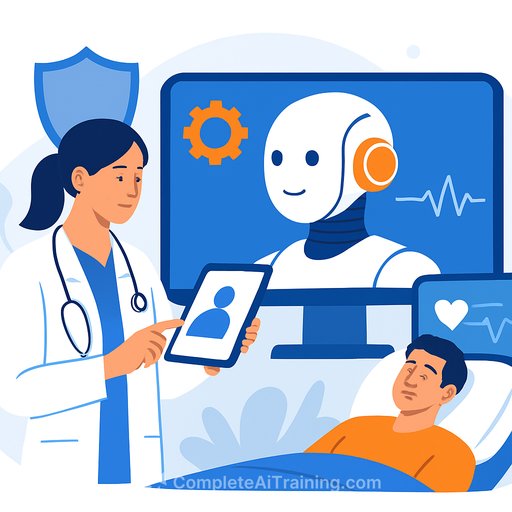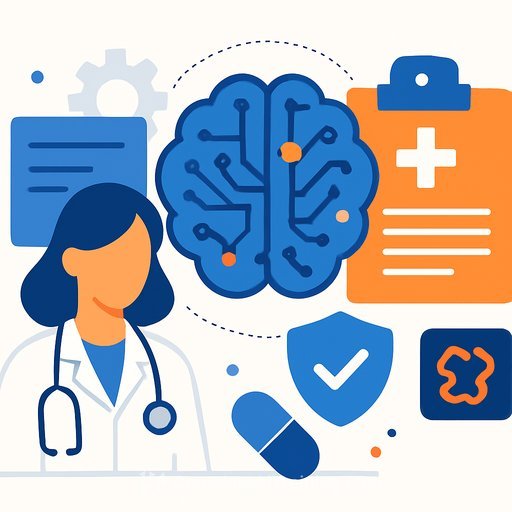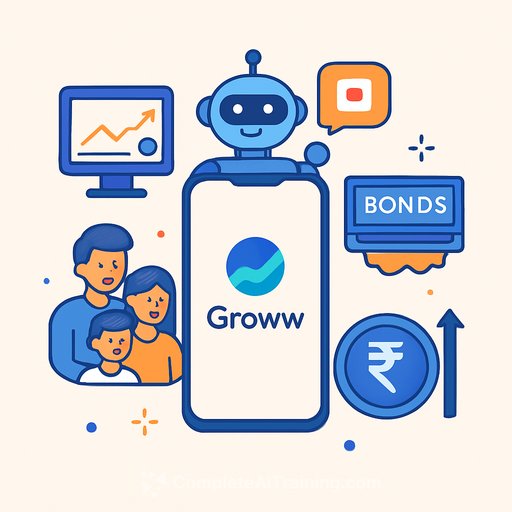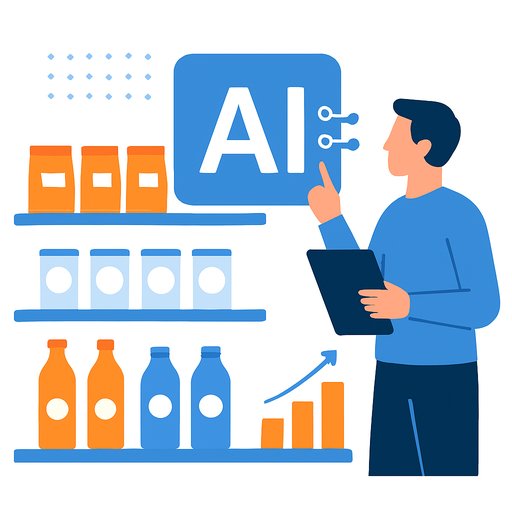AI in B.C. Health Care: Time Saved, Risks Managed
AI isn't a future project in B.C.'s health system-it's already embedded in daily work. At the Health Forward summit in Nanaimo, leaders from the College of Physicians and Surgeons of B.C., First Nations Health Authority, UBC, and frontline clinics shared where AI is delivering value and where it can put organizations at risk.
For managers, the message was clear: treat AI like any high-impact operational tool. Set guardrails, measure outcomes, and build for equity from day one.
Where AI Is Working Today
- Clinical documentation and scribing that draft notes, follow-ups, call lists, and consult letters-reviewed and edited by physicians.
- Diagnostic support: pathology, radiology (x-rays, CTs, MRIs), and predictive analytics to flag high-risk cases sooner.
- Personalized medicine through large data sets and pattern recognition to support individualized treatment plans.
"AI is not coming, it's already here," said Dr. Christine Hall, deputy registrar for the College of Physicians and Surgeons of B.C. "Diagnostic support… documentation… predictive analytics."
The Upside in Numbers
A recent pilot with more than 30 family physicians using AI scribes across 7,000+ appointments showed real time savings. The average physician saved an estimated 2.7 hours of weekly admin work and cut after-visit documentation by 5.7 hours per week.
That's roughly a workday reclaimed-time that can be redirected to patient care, backlog reduction, or quality improvement.
Operational Risks Leaders Must Address
- Consent and data use: Recording a visit isn't the only risk; some tools upload audio to train models. Patients should know where data goes, how it's stored, and for what purpose.
- Data residency and sovereignty: Non-Canadian databases may not fit Canadian health needs or legal expectations. Indigenous data governance and the OCAP principles matter for cultural safety and trust.
- Bias and equity: Underrepresented groups (including Indigenous and LGBTQ patients) can face poorer model performance if datasets are skewed.
- Vendor contracts: Some AI vendors include indemnity clauses that offload responsibility. Due diligence is non-negotiable.
- Reliability and opt-outs: Systems go down. Some patients will decline AI-enabled services. Always maintain a manual path.
"We have to go by the principle of OCAP-ownership, control, access and possession," said Dr. Mark Morris. He warned of losing control to large U.S. vendors if procurement priorities aren't clear.
Governance Moves to Make Now
- Refresh consent language: plain, specific, and separate for recording vs. model training vs. storage.
- Require Canadian hosting and clear data maps: what is collected, where it moves, and retention rules.
- Institute fairness reviews: measure performance across demographics; include Indigenous and LGBTQ advisors.
- Set procurement gates: model transparency, indemnity terms, uptime SLAs, audit logs, redaction standards.
- Define clinical oversight: a named physician or committee accountable for model use and exception handling.
- Run security reviews: PHI protections, access controls, incident response, and third-party risk.
- Document fallback procedures: manual workflows, downtime playbooks, and patient opt-out flow.
Smart Deployment: Pilot, Then Scale
- Pick one workflow (e.g., family practice scribing) with a clear baseline.
- Co-design with clinicians and patients to catch consent and usability gaps early.
- Set KPIs: documentation time, turnaround, clinician satisfaction, error rates, and equity metrics.
- Run A/B or phased rollout: compare AI-assisted vs. standard processes before system-wide adoption.
- Train and simulate outages: ensure teams can operate without AI at any time.
- Define stop, fix, or scale criteria before you start.
Faster Cancer Care: A Practical Example
UBC data scientist Dr. Raymond Ng described a pilot where AI flags key biopsy markers for aggressive cancers. A clinician reviews the AI classification, and an administrator immediately books the right specialist-surgical or medical oncology-without extra handoffs.
This reorders the pathway: instead of multiple appointments and referrals, the patient moves directly to the next best step. Weeks, sometimes months, can be saved, which matters when every delay affects survival.
What to Tell Your Board
- Value case: Recovered clinician hours, shorter queues, faster time to treatment.
- Risk posture: Clear consent, Canadian data residency, equity safeguards, and auditability.
- Clinical governance: Named accountability, validation processes, and documented fallback.
- Community commitment: Respect for OCAP and transparency with patients about how data is used.
The Human Factor
AI should support, not replace, clinical judgment. "Make sure physicians are actually thinking," said Dr. Morris, noting the danger of over-reliance and the reality of outages and opt-outs.
Keep clinicians in the loop, keep patients informed, and keep your operations resilient.
Next Steps for Health Leaders
- Run a tightly scoped AI scribe pilot with strong consent and a manual fallback.
- Use the pilot to build your governance playbook before touching higher-risk use cases.
- Align contracts with your risk standards-don't compromise on data control or indemnity.
- Report quarterly to your executive team on time saved, equity metrics, and incident learnings.
If your leadership team needs a fast upskill on AI evaluation and governance, explore curated learning paths by role at Complete AI Training.
Your membership also unlocks:





